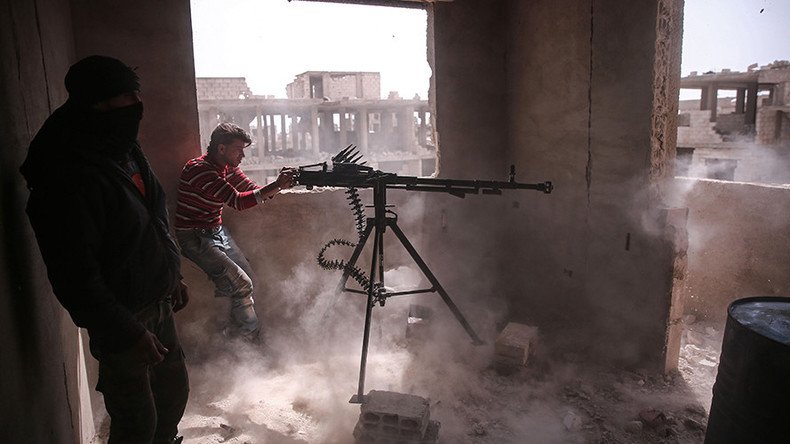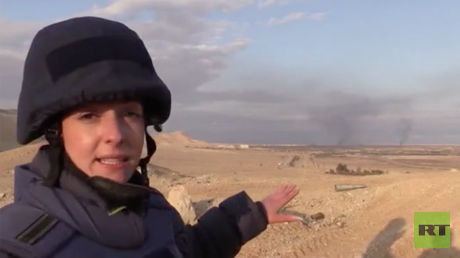Fierce clashes in Damascus as Islamists tunnel into old city (VIDEO)

Fierce clashes erupted in Damascus between the Syrian army and Islamist militants who launched a surprise attack through secret tunnels leading to the government-held Old City. Syria’s capital had been rocked by a string of deadly terror attacks earlier.
The surprise raid began in the Jobar neighborhood east of the Old City early on Sunday with militant car-bomb and suicide attacks, Syrian state news agency SANA reported. The attackers poured into the government-controlled area through a network of underground tunnels in the area, the report added.
The “moderate” Free Syrian Army alongside terrorists from the Al-Qaeda affiliated Nusra Front took part in the attack, Reuters reports, citing a rebel commander, who said the assault on Jobar was meant to “relieve the pressure on rebels” and compensate for defeats in two other neighborhoods in northern Damascus, Qaboun and Barza.
The Syrian military said its troops had isolated and pinned down the militants, while inflicting heavy losses on them, and will continue to pursue them until all are eliminated, according to SANA.
To repel what appeared to be an elaborate and well-coordinated offensive, the Syrian military deployed tanks in some neighboring districts and dispatched troops to engage in street-to-street battles.
The jihadists currently control several areas on the outskirts of Damascus and in its suburbs. Jobar itself has been split between Syrian government forces and rebel groups for more than two years, and armed skirmishes are not uncommon in the area.
In early March, the military discovered a large tunnel connecting the Syrian capital with the nearby town of Eastern Ghouta, a stronghold for jihadist groups such as Jaish al-Islam.
The tunnels, which are said to have been built in 2014, allowed militants to move reinforcements and supplies in and out of rebel-held areas, Al-Masdar reported.
Just days before the assault in Jobar, a string of devastating terrorist attacks hit Damascus in less than a week. On March 11, a twin suicide attack killed at least 33 people, the majority of whom were Iraqi pilgrims visiting a cemetery called Bab al-Saghir, which is a holy site for Shiites.
Four days later, a suicide bomber killed at least 31 people in the Justice Palace in Damascus’ al-Hamidiyeh area. Hours later, another attacker set off an explosive device at a restaurant in the Al-Rabweh district. State media reported that the terrorist ran into the restaurant and detonated a suicide vest after being chased by security agents.
In other parts of Syria, the government has been trying to persuade the rebels to lay down their arms in return for safe passage from besieged areas. Following the landmark victory in Aleppo, over 1,500 militants and their families accepted a ceasefire in long-besieged areas of Homs and were evacuated from the city last week.
Earlier in March, the ancient city of Palmyra (also known as Tadmor in Syria) was liberated by the Syrian army and allied militias. The Russian military said its Air Force and special forces were also involved in the operation.














